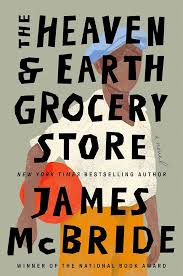Chapter 1: The Hurricane
byChapter 1: The Hurricane begins with the unease that swept through Pottstown, Pennsylvania, just before something unexplainable happened. A discovery at the bottom of an old well off Hayes Street brought a chilling reminder of the past—a skeleton tangled with fragments of life long gone. All eyes turned toward the elderly Jewish man who resided by the deserted synagogue on Chicken Hill, the same man locals remembered simply as Malachi. Police officers visited him not just out of suspicion but because he seemed to carry the town’s forgotten history in his worn clothes and guarded words. The items retrieved—a mezuzah, a red fabric scrap, a belt buckle—were more than relics; they whispered a story that time tried to bury. When asked if he recognized them, his answers danced between humor and sadness, as though truth itself had aged with him.
The conversation revealed more than just old memories. Malachi’s past life as a dancer, once widely admired, had been surrendered decades earlier, buried with the synagogue’s decline and the town’s shifting priorities. When the troopers noted the mezuzah matched one on his door and questioned its meaning, his cryptic reply—“Jewish life is portable”—hinted at a resilience shaped by loss and movement. The Tucker School now loomed nearby, a symbol of prestige and power, silently competing to erase Chicken Hill’s history through land acquisitions and economic pressure. Malachi’s house stood as the final line of resistance, a frail barrier between cultural memory and institutional takeover. His refusal to sell, worn face, and lone tooth were remnants of a neighborhood once rich in rhythm, now reduced to whispers and shadows.
Although the troopers regarded him as a suspect, there was no urgency in his demeanor. His worn vest, sagging tallit, and trembling fingers told of years steeped in hardship, yet he still carried humor and pride in equal measure. As he reached into his pocket and drew pens instead of danger, it wasn’t a show of innocence—it was a subtle defiance of expectations. The officers, unsure of how to read him, made promises they never fulfilled. They said they’d return after investigating the site further, but nature intervened. That very night, the sky turned grim and the winds screamed as Hurricane Agnes struck, bringing with it a torrent of water and reckoning.
Hurricane Agnes, recorded as one of the most destructive storms in U.S. history at that time, poured its fury across Pennsylvania. Floodwaters from the Schuylkill River crept into homes, erased evidence, and rendered once-clear trails of blame into mud and ruin. Four counties were left in darkness, both literally and metaphorically, as phone lines and electricity gave way to nature’s overwhelming force. For many, it seemed like divine intervention had interrupted the investigation and cast doubt over whether justice could ever be truly served in Chicken Hill. The elderly Black women of the area, known for their insight and deep-rooted spirituality, claimed it wasn’t just a storm—it was retribution. They whispered that white men had built too high, had forgotten too much, and now heaven itself had come to level the field.
For readers unfamiliar with Chicken Hill, it was a neighborhood where immigrants, outcasts, and dreamers once built lives stitched together by struggle and hope. The synagogue where Malachi now lived wasn’t just a place of worship—it was once a center of community life, filled with laughter, music, prayer, and debate. But over time, as industrialization reshaped towns and schools like Tucker gained wealth and influence, places like Chicken Hill were pushed to the margins. What happened at that well wasn’t just about a single death; it was about what gets remembered and what gets erased. The hurricane didn’t just bring water—it brought questions with no easy answers. And in the eye of that storm, Malachi stood quietly, perhaps the last man who still remembered the real story.


